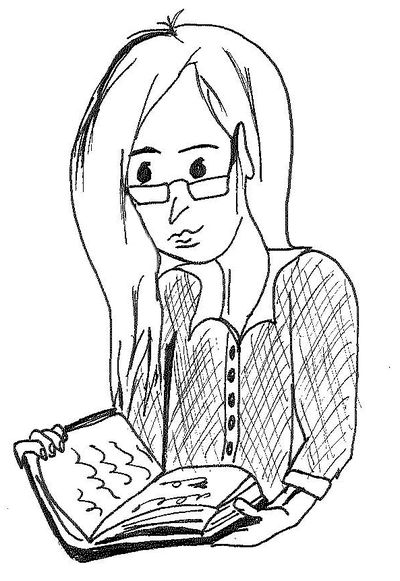The latest installment of our book advice column where you can ask our wise bookseller Agatha all your tricky (book-related) questions.
My husband and I need you to help settle an argument around book etiquette. Is it really that rude to read at the table during a meal? If yes, can exceptions be made if you are at a crucial part in the story?
It’s not really a question of where you are in the story but which meal you’re talking about. At breakfast, for example, reading at the table is not only permitted but strongly recommended. There’s little need for conversation at this hour of the day that extends beyond, ‘Pass the bircher please, dear.’ During dinner, however, there are no exceptions. I don’t care if you’re about to find out whodunnit – it can wait.
Lunch, therefore, is the grey area. Typically, the kinds of foods we eat at this time of the day, things like sandwiches, wraps, a Mediterranean tomato Cup-a-Soup, lend themselves so well to multi-tasking that it seems a pity not to take advantage.
I love novels that really get into the psychology of the characters, where you really ‘get inside’ the characters’ heads. It is partly for this reason that I loved Freedom by Jonathan Franzen. I was wondering if you could please recommend novels that afford the reader a similar pleasure?
There are certainly a lot of novels that fit this bill, so to narrow the field, I’m going to start with a new release. Out this month is Emma Straub’s The Vacationers, which is about a dysfunctional New York family on vacation in Spain, and the secrets and drama the trip brings to the surface. The perspective shifts from one character to another, and it certainly has a Freedom vibe about it. Another book released earlier this year I would recommend is We Are All Completely Beside Ourselves by Karen Joy Fowler. It goes deep into the psychology of a family and its secrets, and asks a lot of fascinating questions around ethics, memory and what it means to be human. Everyone I know who has read this book has fallen in love with it (myself included).
Finally, two more recommendations include The Interestings by Meg Wolitzer, a beautiful brick of a novel that follows a fascinating group of characters throughout their lives, and Family Life by Akhil Sharma, a new novel that I haven’t read yet but has been praised by critics and readers alike for its powerful, funny portrayal of an aspiring immigrant family (and it has been heartily endorsed by a fellow Franzen-lover I know).
I have read and absolutely loved the Patrick Rothfuss books – The Name of the Wind and The Wise Man’s Fear. While I am patiently waiting for the third book in the series, I was hoping you could recommend some equally brilliant and absorbing books to keep me occupied? I am struggling to find anything of the same calibre.
The first author who springs to mind is Brandon Sanderson. His name is frequently mentioned in relation to Rothfuss and he’s known for his compelling, character-driven fantasy. I’d recommend starting with The Way of Kings, which is an epic, absorbing read and the first in a series. You might also be interested in trying Brent Weeks’ The Way of Shadows, which is dark, dangerous and – once again – very much brought to life by compelling characters. There’s also The Lies of Locke Lamora by Scott Lynch, which some readers say is even better than Rothfuss.
For something a little different – but still in the vein of fantasy-adventure – have a look at Daughter of Smoke and Bone by Laini Taylor. It’s a favourite here at Readings.
I didn’t cry in The Fault in Our Stars. Am I a monster?

There’s a wave of mass hysteria at the moment over John Green’s sixth novel, which is a bit like a young-adult literary version of Beatlemania. Picture a Beatles fan of the 1960s who sat quietly at home next to her record player cradling Abbey Road instead of rushing the stage in a tear-streaked mess: did she too feel like she wasn’t listening properly?
The way I see it is, just as we should never feel ashamed of the genre we read, we should also count our reaction to a book as just as valid as the next reader, even if the next reader is experiencing ‘all the feels’ and we are only experiencing mild-to-medium ‘feelage’. Crying in books doesn’t mean you got it more than others. Not crying in books doesn’t mean you’re less of a fan. I didn’t cry when I read The Fault in Our Stars either but still think it’s a wonderful book. It does what YA books so often do well: provides hope without softening the blow of the situation too much.
The real sadness for me is that Esther Earl, late friend of John Green and who was the inspiration for the main character, died before she could experience her own love affair. (She tells her story in This Star Won’t Go Out.)
If you have a question for Agatha please email


